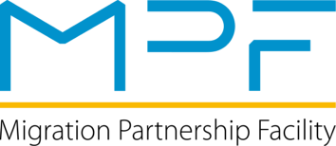Pilot project for business mobility between Belgium and Senegal (PEM-WECCO)

Duration
October 2021 - September 2024Budget
EUR 2,611,923.50 (95% from AMIF)
Implemented by
Enabel, the Belgian Development Agency is implementing this project in collaboration with the Belgian Immigration Office (Office des Etrangers).
This 30-months circular mobility scheme makes knowledge and practical exchange possible between Belgian and Senegalese companies. With a view to building the capacities of Senegalese entrepreneurs and connecting them to their Belgian peers, the project aims to offer short-term migration opportunities for business purposes while contributing to the construction of a sustainable economic partnership between the two countries. Also, by promoting a safe environment for institutional dialogue around professional mobility between Senegal and Belgium, the project seeks to strengthen trust between public and private actors in order to make entrepreneurial mobility a safe channel for temporary migration.
Partners


Activities
Pre-departure
Up to 60 Senegalese employees and entrepreneurs will be selected to participate in the project. Prior to their departure to Belgium, they will receive support and training. This includes a module on the Belgian entrepreneurial ecosystem as well as socio-cultural preparatory courses that will help them make the most of their stay in Belgium. A mapping of relevant institutional and private sector actors will be conducted to facilitate the formation of institutional partnerships and identify capacity building needs of the various stakeholders.

Mobility
The project takes an innovative approach to mobility by applying Belgium’s existing visa pathway for third country business representatives to entrepreneurs from small, micro-, or nano-enterprises. Upon arrival to Belgium, the Senegalese professionals will engage in learning and exchange itineraries with Belgian companies, incubators and/or universities, with the goal to create cross-country partnerships between economic and business support actors that will support the creation, incubation, acceleration and internationalisation of businesses in Senegal.

Reintegration
Upon return to Senegal, follow-up activities will be organized that support international business development or the start of joint venture opportunities. Assistance will be tailored to the different types of partnerships forged during the mobility phase.

Cross-cutting activities
Throughout the project, networks will be strengthened; not only between companies but also among public and private actors dealing with private sector development and mobility in the two countries. A variety of workshops and seminars as well as the exchange of learning notes will help to gather and disseminate best practices that emerged from the project.

